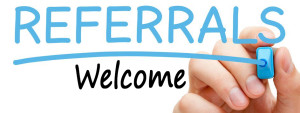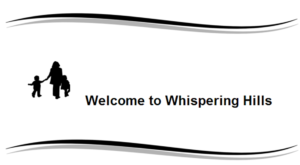
W.O.M.E.N. On A Journey – Our 2013 Spring/Summer Newsletter
A bit of time has gone by since the last edition of ‘W.O.M.E.N. On A Journey’, and what a journey we are on. There have been a lot of exciting changes, additions, and ideas going on in and out of the office and we are all very excited for this next chapter of the organization. In keeping with our mission, W.O.M.E.N. has been a part of numerous health fairs and festivals throughout the community. We have formed wonderful new partnerships and are conducting on-site health screens and counseling in addition to our other services. As you will read further in this edition, we also have a number of new campaigns that are shaping up to not only change our organization, but change the lives of those we touch.
Please click HERE to view our 2013 Spring/Summer Newsletter!
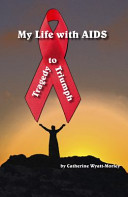
My Life With AIDS, Tragedy to Triumph – Available NOW
With FIVE STARS on www.amazon.com, My Life With AIDS, Tragedy to Triumph is available now! Considered “a must read” by one reviewer, “Catherine not only delivers a powerful message, but one that is heartfelt, honest and impactful. It is one of the most important messages that a woman (or man) could witness.”
Just like her previous work, Catherine Wyatt-Morley has poured her heart into this book using every bit of strength she has. Catherine went through a cycle of internalizing and self-educating, before she gained the strength for helping others. Desperately seeking sanity in an insane diagnosis, she took control of her life through the pages of her first book, AIDS Memoir Journal of an HIV Positive Mother written to her children and in 2005, Catherine joined Ian Mayo-Smith in writing a second book, entitled Positive People: Combating HIV and AIDS (Trafford Publishing).
In AIDS as in many other diseases both physical and psychological, the most successful prevention efforts aim not just at informing people, but also at changing social norms. Catherine’s life and W.O.M.E.N. carry out both of those tasks. Catherine hopes to remain at the forefront in the fight against HIV/AIDS and fervently believes that before the sun sets on another child’s dreams, HIV must be eliminated. “I can say that she not only writes the message, but she LIVES the message each day as she strives past her own struggles to educate and impact others.” – amazon.com review of My Life With AIDS, Tragedy to Triumph.
My Life With AIDS, Tragedy to Triumph is available HERE in paperback and Kindle version
Pick up your copy today!

Pregnancy and HIV/AIDS – What You Need to Know
Motherhood is an experience that everyone who wants to, deserves to experience. It is as rewarding as it is life changing, and it is imperative that you are in the best health you can be to start your child’s life the healthiest way possible. What most people don’t realize is that there are ways to get pregnant and not infect your partner or the child. With that said, when embarking on this journey, it is imperative to know that HIV can be spread to your baby during the pregnancy, while in labor, while giving birth, or by breastfeeding. Luckily, you will have many choices to make about lowering the risk of passing HIV to your baby. Just because you have HIV doesn’t mean your child will get HIV. In the United States, before effective treatment was available, about 25 percent of pregnant HIV-positive mothers who didn’t breastfeed and did not receive anti-HIV treatment in pregnancy passed the virus to their babies.
Today, the risk of giving HIV to your newborn is below 2 percent. But you and the baby must get the right HIV drugs at the right times. The steps below can lower the risk of giving HIV to your baby.
- -Get as healthy as possible before becoming pregnant.
- -Start HIV treatment before pregnancy if you need it for your own health. Or, you can start treatment during pregnancy to lower the risk of passing HIV to your baby. If you are already on treatment, do not stop, but do see your doctor right away. Some HIV drugs should not be used while you’re pregnant. For other drugs, you may need a different dosage.
- -Make sure your baby is tested for HIV right after birth. Your doctor or clinic should be experienced in managing babies who have been exposed to HIV. They will tell you what follow-up tests your baby will need, and when.
- -Ask your doctor about starting treatment for your baby right away if your baby is diagnosed with HIV. This may require a number of tests and you may not know until he is 2 to 4 months old.
- -Until you know that your baby is HIV-positive or HIV-negative, ask your pediatric HIV specialist if your baby might benefit from anti-HIV medicines. New research shows that putting a newborn on a 2- or 3-drug anti-HIV medicine plan cuts the infant’s risk of HIV by 50 percent (compared to using one drug only).
- -Ask your doctor about other medicines the baby may need to prevent opportunistic infections until you know for sure whether the baby has HIV.
If you want to get pregnant, or just found out you are pregnant, you need to get to a doctor right away. If you need help finding the resources for you, give us a call and we will be happy to help!
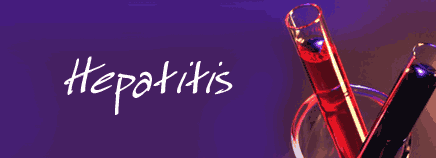
What You Need to Know about Hepatitis
To put it simply, Hepatitis means inflammation of the liver. Unfortunately, nothing about Hepatitis is simple. According to the World Hepatitis Alliance, Hepatitis is a disease that that currently affects more than 500 million people around the world and is responsible for approximately 1.5 million deaths a year. Currently the world’s 8th biggest killer, Viral hepatitis is one of the most underestimated diseases on the planet. Although one in three people around the world have been in contact with a hepatitis virus, many people have no idea what it is.
Viral Hepatitis Transmission
People can be infected with the three most common types of hepatitis in these ways:
- HAV: Ingestion of contaminated fecal matter, even in tiny amounts, from close person-to-person contact with an infected person, sexual contact with an infected person, or contaminated food, drink, or objects.
- HBV: Contact with infectious blood, semen, or other body fluids; sexual contact with an infected person; sharing of contaminated needles, syringes, or other injection drug equipment; and needlesticks or other sharp-instrument injuries. In addition, an infected woman can pass the virus to her newborn.
- HCV: Contact with blood of an infected person, primarily through sharing contaminated needles, syringes, or other injection drug equipment, and, less commonly, blood transfusions, sexual contact with an infected person, birth to an infected mother, and needlesticks or other sharp-instrument injuries.
Chronic HCV is often “silent,” and many people can have the infection for decades without having symptoms or feeling sick. Compared with other age groups, people aged 46 to 64 are 4 to 5 times as likely to be infected with HCV. Any sexual activity with an infected person increases the risk of contracting hepatitis. In particular, unprotected anal sex increases the risk for both HBV and HIV. New data suggest that sexual transmission of HCV among MSM with HIV occurs more commonly than previously believed. (according to the Center for Disease Control)
Viral Hepatitis Prevention
If you have HIV infection, you can lower your risk of contracting hepatitis and other bloodborne viruses by not sharing toothbrushes, razors, or other personal items that may come into contact with an infected person’s blood. Do not get tattoos or body piercings from an unlicensed facility or in an informal setting, which may use dirty needles or other instruments. Just as HIV-positive individuals would not want to engage in behaviors that would put them at risk for hepatitis, these same behaviors would also put others at risk for HIV.
- HAV: The best way to prevent HAV infection is to get vaccinated. The Centers for Disease Control and Prevention (CDC) recommends vaccination for HAV for people who are at risk for HIV infection, including MSM; users of recreational drugs, whether injected or not; and sex partners of infected people.
- HBV: The best way to prevent HBV infection is to get vaccinated. CDC recommends universal vaccination against HBV for people who have or are at risk for HIV infection, including MSM; people who inject drugs; sex partners of infected people; people with multiple sex partners; anyone with a sexually transmitted infection; and health care and public safety workers exposed to blood on the job.
- HCV: There is no vaccine for HCV. CDC estimates that people born during 1945 through 1965 account for nearly 75% of all HCV infections in the United States. The best way to prevent HCV infection is to never inject drugs or to stop injecting drugs if you currently do so by getting into and staying in a drug treatment program. If you continue injecting drugs, always use new, sterile syringes and never reuse or share syringes, needles, water, or other drug preparation equipment. You can also reduce your risk for contracting HCV from sexual contact by
- Abstaining from sexual intercourse.
- Being monogamous.
- Using a condom.
- Avoiding rough sex.
- Getting tested for sexually transmitted diseases and HIV.

…Things You Should Know about HIV and Safer Sex (cont.)
- If you chose to have sex, use a latex condom with EVERY partner. No exceptions.
- Use protection, wear a latex condom.
- Use a new latex condom each time you have vaginal, anal or oral sex.
- Use water based lubricant with latex condoms.
- Never use an oil-based lubricant such as hand lotion or baby oil. It weakens the latex and the condom may break.
- Use a latex barrier (a condom cut in half or a dental dam) if you have oral sex with a women.
- Massage, hugging and masturbation are safe.
- It’s safer not to use drugs.
- Insist on watching your NEW tattoo needle come out of packaging before getting a tattoo. Never share needles or inks for tattooing or piercing.
- NO CONDOM, NO SEX, NO WAY.” tells your partner you’re serious about safer sex.
- Talk about safer sex with EVERY partner before you have sex.
- Ask your partner about his/her sexual history, behaviors and drug usage before you engage in any sexual activity.
- If you are infected and do not inform your sexual partner of your HIV status before sex and you engage in unprotected sex and transmit HIV to that person you have committed a felony.
- Taking a HIV test is the only way to know you are not infected.
- Get tested three to six months after any unprotected exposure.
- You have options. You can buy a home HIV test kit at most drug stores. Then contact the nearest community based organization for counseling or to ask questions. You can also get tested by a doctor, health clinic, community based organization or public testing center.
- Some testing sites keep results confidential while others utilize anonymous testing. Confidential testing uses your real name. You and your doctor will know the results. Anonymous testing doesn’t use your name at all. Only you will know your results.
- People are still dying of AIDS related illnesses.
- THERE IS NO CURE! Remember you are in charge.
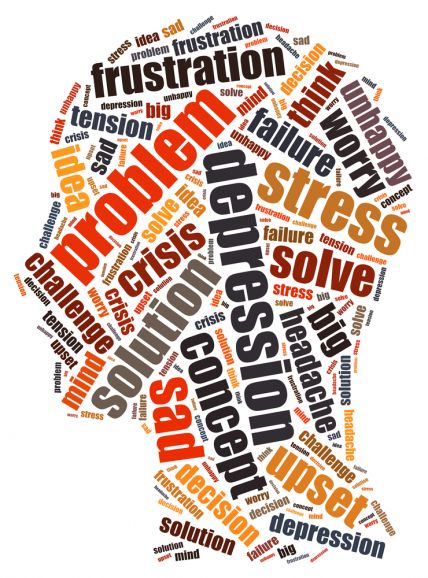
HIV and Mental Health
Receiving a diagnosis of HIV comes with an array of emotions. Initial feelings of shock and denial can turn to fear, guilt, anger, sadness, and a sense of hopelessness, some people even have suicidal thoughts. It is understandable that one might feel helpless and fear illness, disability, and even death. In fact, according to aids.gov, research proves that people who are living with HIV/AIDS often have mental health disorders like anxiety, depression, or mania.
The virus itself can affect your mental health. Some opportunistic infections (which occur when your immune system is damaged by HIV) can affect your nervous system and can lead to changes in behavior and functioning. Some illnesses, like dementia, can be associated with advanced cases of HIV disease. For these reasons, it is important to do a comprehensive evaluation of your mental health and well-being at the beginning of your treatment. It is also important to be open and honest with your healthcare provider about changes in the way you are thinking, or how you are feeling about yourself and life in general.
One thing that is certain, when living with HIV/AIDS, good mental health is essential for a successful treatment and for living a happy and healthy life. The first step of doing so is knowing that HIV can affect your mental health – and that there are resources available to help if you need it. So how do you know that it’s time to get help? Sometimes, you can notice a change in yourself—and, sometimes, the people around you are the ones who notice. Some changes that might be significant include:
- Experiencing “panic attacks”
- No longer finding enjoyment in activities which usually make you happy
- Withdrawing from social interaction
- Change in memory functioning
- Sleeping too much—or being unable to sleep
- Feeling “sad” or “empty” much of the time
- Feeling guilty
- Feeling tired all the time
Below are mental health diseases commonly associated with a diagnosis of HIV according to the American Psychiatric Association:
Depression
Depression is a serious medical condition that can be paralyzing to sufferers. It is twice as common in people with HIV as in the general population. Depression is characterized by the presence of most or all of the following symptoms: low mood, apathy, fatigue, inability to concentrate, loss of pleasure in activities, changes in appetite and weight, trouble sleeping, low self-worth, and, possibly, thoughts of suicide. There are many different types of treatments for depression, including antidepressants and specific types of psychotherapy, or “talk” therapy. Treatment, however, must be carefully chosen by a physician or a mental health professional based on the patient’s physical and mental condition.
Anxiety
Anxiety is a feeling of panic or apprehension, which is often accompanied by the physical symptoms of sweating, shortness of breath, rapid heart beat, agitation, nervousness, headaches, and panic. Anxiety can accompany depression or be seen as a disorder by itself, often caused by circumstances that result in fear, uncertainty, or insecurity. Each HIV patient and each experience of anxiety is unique and must be treated as such. Many drugs offer effective treatment, and many alternative remedies have proven useful, either alone or in combination with medication. Among them: muscle relaxation, acupuncture, meditation, cognitive behavioral therapy, aerobic exercise, and supportive group therapy.
Substance Use
Substance use is very common among those with HIV infection. Unfortunately, substance use can trigger and often complicate mental health problems. For many, mental health problems predate substance use activity. Substance use can increase levels of distress, interfere with treatment adherence, and lead to impairment in thinking and memory. Diagnosis and treatment by a psychiatrist or other qualified physician is critical because symptoms can mimic psychiatric disorders and other mental health problems. The idea that HIV is closely connected to substance abuse is not surprising to healthcare providers who have been working to care for people living with HIV for any length of time. But what many people don’t know is that substance abuse is significantly tied to both prevention AND treatment of HIV.
Cognitive Disorders
Direct or indirect effects of the HIV virus can affect brain functioning. Some medications used to treat HIV infection also can cause similar complications. In people with HIV infection or AIDS, these complications can have a significant impact on daily functioning and greatly diminish quality of life. Among the most common disorders are HIV-associated minor cognitive motor disorder, HIV-1-associated dementia complex, delirium, and psychosis. Signs of trouble may include forgetfulness, confusion, attention deficits, slurred or changed speech, sudden changes in mood or behavior, difficulty walking, muscle weakness, slowed thinking, and difficulty finding words.
Signs of any of these problems should be discussed with a physician immediately. New anti-HIV therapies in combination with psychiatric medication can reverse delirium and dementia and markedly improve cognition; however, special care must be taken to ensure that the drugs do not interact with HIV medications. Psychotherapy also can help patients understand their condition and adapt to their diminished level of functioning.
One of the hardest parts of having mental health issues is that you may not feel like seeking treatment or going to your appointments once you schedule them. If you are feeling this way, ask a friend or family member to help you make and keep your appointments. When you follow through, your mental health provider can help you feel better, and that can improve your chances of successful HIV treatment.

Heart Disease in Women
All women face the threat of heart disease. But becoming aware of symptoms and risks unique to women, as well as eating a heart-healthy diet and exercising, can help protect you.
Although heart disease is often thought of as a problem for men, more women than men die of heart disease each year. One challenge is that the heart disease symptoms in women can be different from symptoms in men. Fortunately, women can take steps to understand their unique symptoms of heart disease and to begin to reduce their risk of heart disease.
According to the Center for Disease Control, the term “heart disease” refers to several types of heart conditions. The most common type in the United States is coronary artery disease, which can cause heart attack, angina, heart failure, and arrhythmias.
Heart Attach Symptoms In Women: The most common heart attack symptom in women is some type of pain, pressure or discomfort in the chest. But it’s not always severe or even the most prominent symptom, particularly in women. Women are more likely than men to have heart attack symptoms unrelated to chest pain, such as:
- Neck, shoulder, upper back or abdominal discomfort
- Shortness of breath
- Nausea or vomiting
- Sweating
- Lightheadedness or dizziness
- Unusual fatigue
These symptoms are more subtle than the obvious crushing chest pain often associated with heart attacks. This may be because women tend to have blockages not only in their main arteries, but also in the smaller arteries that supply blood to the heart — a condition called small vessel heart disease or microvascular disease.
Heart Disease Risk Factors for Women: Although the traditional risk factors for coronary artery disease — such as high cholesterol, high blood pressure and obesity — affect women and men, other factors may play a bigger role in the development of heart disease in women. For example:
- Metabolic syndrome — a combination of fat around your abdomen, high blood pressure, high blood sugar and high triglycerides — has a greater impact on women than on men.
- Mental stress and depression affect women’s hearts more than men’s. Depression makes it difficult to maintain a healthy lifestyle and follow recommended treatment, so talk to your doctor if you’re having symptoms of depression.
- Smoking is a greater risk factor for heart disease in women than in men.
- Low levels of estrogen after menopause pose a significant risk factor for developing cardiovascular disease in the smaller blood vessels (small vessel heart disease).
What Can Women Do to Reduce the Risk of Heart Disease:
Luckily, there are several lifestyle changes you can make to reduce your risk of heart disease. Just incorporating these simple daily activities could be a matter of life and death.
- Exercise 30 to 60 minutes a day on most days of the week.
- Maintain a healthy weight.
- Quit or don’t start smoking.
- Eat a diet that’s low in saturated fat, cholesterol and salt.
You’ll also need to take prescribed medications appropriately, such as blood pressure medications, blood thinners and aspirin. And you’ll need to better manage other conditions that are risk factors for heart disease, such as high blood pressure, high cholesterol and diabetes. Some women at high risk of heart disease may also benefit from the use of supplements, such as omega-3 fatty acids. (Mayo Clinic)

Grant Writing Position Available with W.O.M.E.N.
Women On Maintaining Education and Nutrition is looking to fill the position of Grant Writer. This position will be responsible for writing proposals for both unrestricted operating revenue and restricted projects as well as for submitting timely and accurate reports for all existing grant funded projects. This is a part time position with the potential to become full time depending upon resources acquired.
Major Responsibilities:
- Write and edit proposals in response to foundation, corporate and government RFP’s
- Manage a calendar of both unrestricted and restricted deadlines
- Attend applicable resource development meetings
- Maintain a clear understanding of the organization’s history and programs
- Make appointments with foundation officers
- Identify potential funders
- Produce letters of intent and proposals for submission
- Develop professional working relationships with private and public funder contacts and monitors
Requirements:
- Proven experience in writing successful proposals, particularly federal proposals, in one or more of the following areas: Economic Development, Family Support Services, HIV/AIDS Services, Housing Services and Food Services
- Ability to analyze present data in a compelling manner
- Strong familiarity with government and foundation contract/grant proposals
- Ability to manage time and multiple projects efficiently
- Excellent attention to detail; ability to proofread effectively
- Ability to work in a team environment and be self-directed
- Strong computer and interpersonal skills
- Ability to manage and meet multiple deadlines
Knowledge and Skills:
- Strong written communication skills; ability to write clear, structured, articulate and persuasive proposals
- Strong editing skills, attention to detail and ability to meet deadlines
- Experience with proposal writing and institutional donors
- Strong contributor in team environments
Qualifications:
- Minimum of two years experience with grant writing
- Previous experience with non-profit fundraising
- Experience working in deadline-driven environments
- Able to work well in a team environment, handle multiple assignments and meet deadlines
- Able to monitor and meet income goals
DIRECTIONS FOR APPLYING: Send resume, salary requirements and cover letter detailing how your experience and skills fit this position, as well as a written grant submission sample which you prepared to [email protected]

